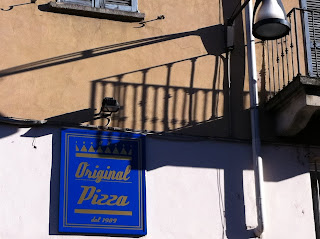next post Monday January 16th 2012
How to
dress for a meeting in Italy?
I wore just
twice jeans in a working day and both time I have been reproached by my boss,
actually two different ones.
We are
pretty formal, and we do judge potential suppliers and partners by their
dressing style. I know, that’s not fair neither too relevant. It’s our culture.
Yes, Sergio
Marchionne, the famous CEO of the Fiat Group, Chrysler included, can wear a
sweater, a black polo neck sweater and no one dare to judge him.
But, unless
you are Marchionne, or someone at the same level of popularity, my suggestion is to follow the
tradition dressing code: so wear a jacket and a tie and try to avoid too bright
colors, that could be suitable if you work with the fashion gurus but not for
more traditional niches like mechanical, heavy industry, power generation, ICT
and so on.
Accenture
and particularly McKinsey people in Italy uses to wear black dress, sometime
daring to go for a sober chalkstriped one, while ladies use to wear a somber
black or gray close fitting dress (like Audrey) or a tailleur with a smart and
moderate pearl necklace.
Of course
you are not asked to dress that way, but the closer you can go to this sample,
the better it is. In any way my suggestion is to avoid any kind of affectation:
gold Rolex could work during the “anni da bere”, the 80s, not know.
I used to
work for a filtration system companies and many of my clients were iron mills,
paper mills, machine tools producers and end users and so on. We use to filter
lubrication oils. So we had to visit the maintenance manager down in the
subsoil where the tanks and pumps are.
I’ve been
taught to dress anyway as I was meeting their CEO in their smart headquarter
downtown.
And what
about summer, when hot hits hard? Same thing. You could try to forget your tie
in the last fortnight of July, south of Florence, and if you have already met
the client, so that won’t be your first impression.
What is
your experience of the dressing code in Italy?
































